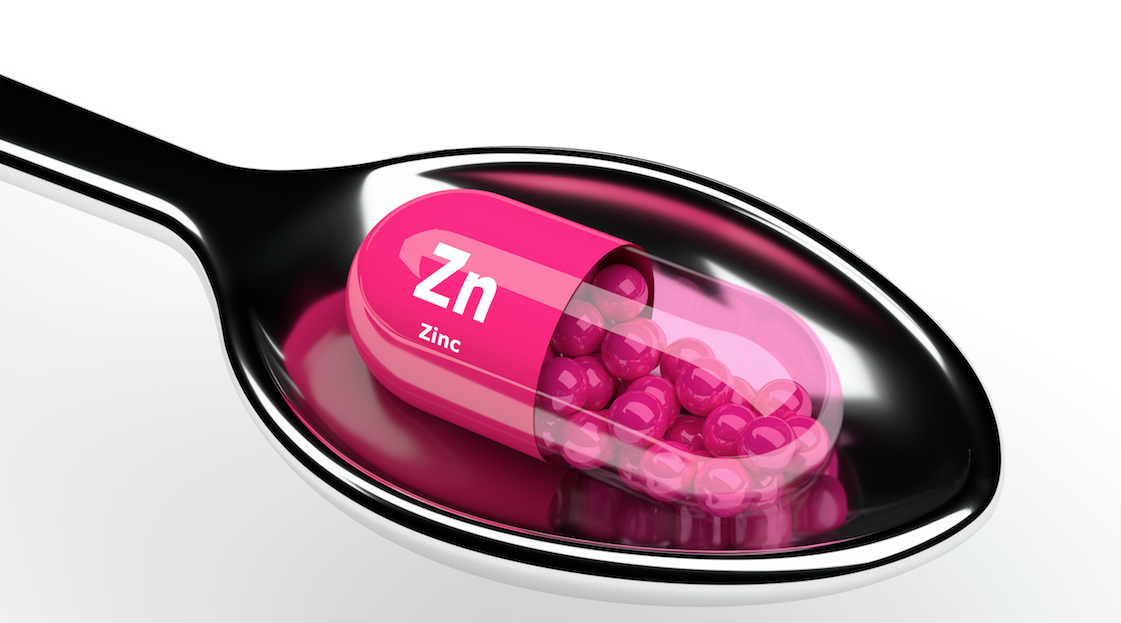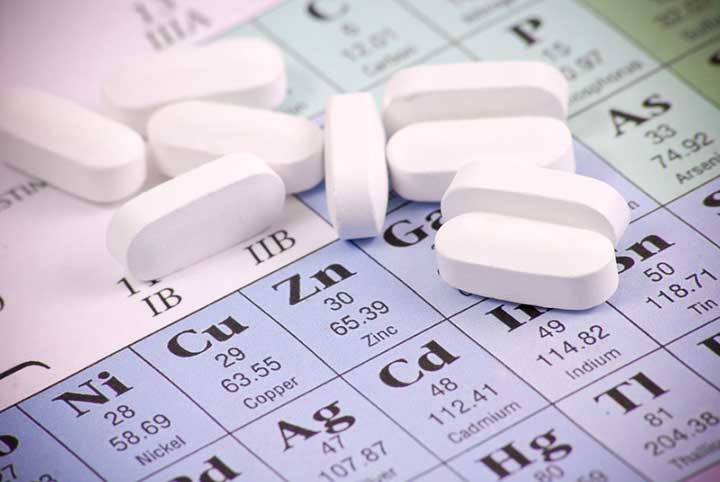Health Benefits of Zinc Supplements
Before we move on to the benefits and everything you need to know about this essential nutrient, what is zinc?
Zinc is a beneficial element in various animal and plant foods you consume. Not only does it support growth and to have a strong immune system during childhood, but it also does wonders for your body throughout the entire phase of life.
However, zinc cannot be stored or naturally produced by our bodies, so taking supplements or having a constant diet supply of zinc is required to live healthily.
So what are the health benefits of zinc supplements? We explain the different types of zinc, their benefits, uses, some possible side effects, and everything about zinc that you should know about.

What are the different types of zinc?
There are various types of zinc supplements you can choose from, each different in its way:
Zinc picolinate
Type of zinc chelated to picolinate amino acids, studies have shown that this form is easier to be absorbed by your body when compared to the rest of the types of zinc.
Zinc gluconate
Zinc gluconate is a popular supplement among the population and the most common dietary zinc available. Created by fermentation of glucose, it is used in nasal sprays lozenges.
Zinc picolinate
Zinc, which is chelated to picolinate amino acid, is known to be better absorbed compared to the other forms of zinc.
Zinc acetate
Like zinc gluconate, it is also used in tablets and boosts recovery.
Zinc orotate
Zinc that is chelated to orotic acid is also one of the most common zinc supplements sold and is used to treat low testosterone levels.
Zinc sulfate
It is a non-chelated, water-soluble form of zinc that helps reduce acne and prevent zinc deficiency.
In order to be constant with your intake of zinc supplements, it is beneficial to stick to the most common, popularly available, and cost-effective type of supplements like zinc gluconate.
Health benefits and uses of Zinc supplements
Zinc is responsible for a staggering amount of health benefits for your body.
It helps boost your immune system
We all know what a weak immune system can do to someone’s health. A slight zinc deficiency in your body will weaken your immune system, and you might be at risk of infections such as pneumonia.
Taking zinc supplements or foods rich in zinc will help boost your immune system and reduce the risk of infections in adults.
Zinc can also help reduce or relieve oxidative stress and enhance your immune response since it boosts certain activities of natural killer cells and T-cells, which are responsible for protecting your body against infections.
Potential to reduce the risk of age-related diseases
Diseases such as AMD (age-related macular degeneration), an eye disease that occurs due to aging or the risk of any age-related infections, can be reduced by taking a constant supply of zinc.
Although it cannot stop the degeneration of AMD, having security in knowing that it has the potential to prevent it is better than none.
Studies and researchers have come a long way with zinc and its potential to benefit your body as an older adult. It has been proved that, if taken 45mg daily, elemental zinc may reduce or decrease infections by more or less 66% in senior citizens.
Speeds up wound healing
It is proven that zinc can help your body heal wounds faster. Since zinc plays a crucial role in collagen synthesis, inflammatory response, and immune functions, all necessary for healing, medical experts prescribe zinc to speed up wound healing.
Hospitals use zinc as a treatment for burns and skin injuries, and it is shown that patients with a zinc deficiency tend to heal a lot slower than people using zinc supplements.
Treating acne
Zinc is an essential element in keeping your skin healthy. Acne is common among the population, and taking zinc supplements might do the trick. Taking oral zinc treatment helps reduce inflammation, thereby suppressing your oily glands’ activity.
It is studied that people who are more prone to or affected by acne mostly have zinc deficiency and taking zinc supplements may help reduce the symptoms.
Beneficial for your sexual health
Usually, in men, it may be because of your deficiency in zinc if you have fertility problems and different sexual health issues. Since zinc is a natural hormone balancer, it is reported to be an essential element for sexual health in men.
Too much or too little of anything may be dangerous, so experts advise taking zinc supplements in moderation. It is believed that taking too much zinc can cause interferences with your sperm making it harmful.

What happens if you have a zinc deficiency?
Zinc deficiency is rather common than you think. A mild zinc deficiency can lead to thinning of hair, dry skin, a slow wound healing process, diarrhea, and a decrease in immunity. It can also lead to mood disturbances and a decrease in appetite.
The symptoms of severe zinc deficiency, which is rare, include chronic diarrhea, delayed sexual maturity, impaired growth, behavioral issues, and skin rashes. Often genetics is the cause of severe zinc deficiency.
Studies have shown that zinc deficiency occurs in people who abuse alcohol, those who suffer from gastrointestinal diseases, breastfeeding and pregnant women, vegans and vegetarians, and those with chronic kidney diseases.
It is always better to test your zinc levels and have a proper intake of zinc in your diet as well.
Precautions while taking zinc supplements
Mouth– The safe daily intake is 40 mg of zinc. There are possible risks like vomiting and all sorts of problems if you take more than 40 mg of zinc every day.
Application on the skin– Symptoms of burning, itching and stinging can occur if applied on broken skin.
While zinc is highly available in foods like fish, red meat, and poultry, you can also find zinc in various plants that you can include in your diet.
As we’ve mentioned, your body cannot naturally produce zinc, and hence, taking zinc supplements or eating foods that are rich in them may prove to be beneficial for your overall health.





